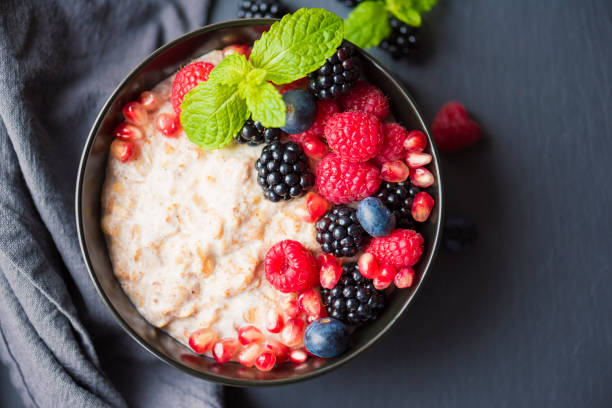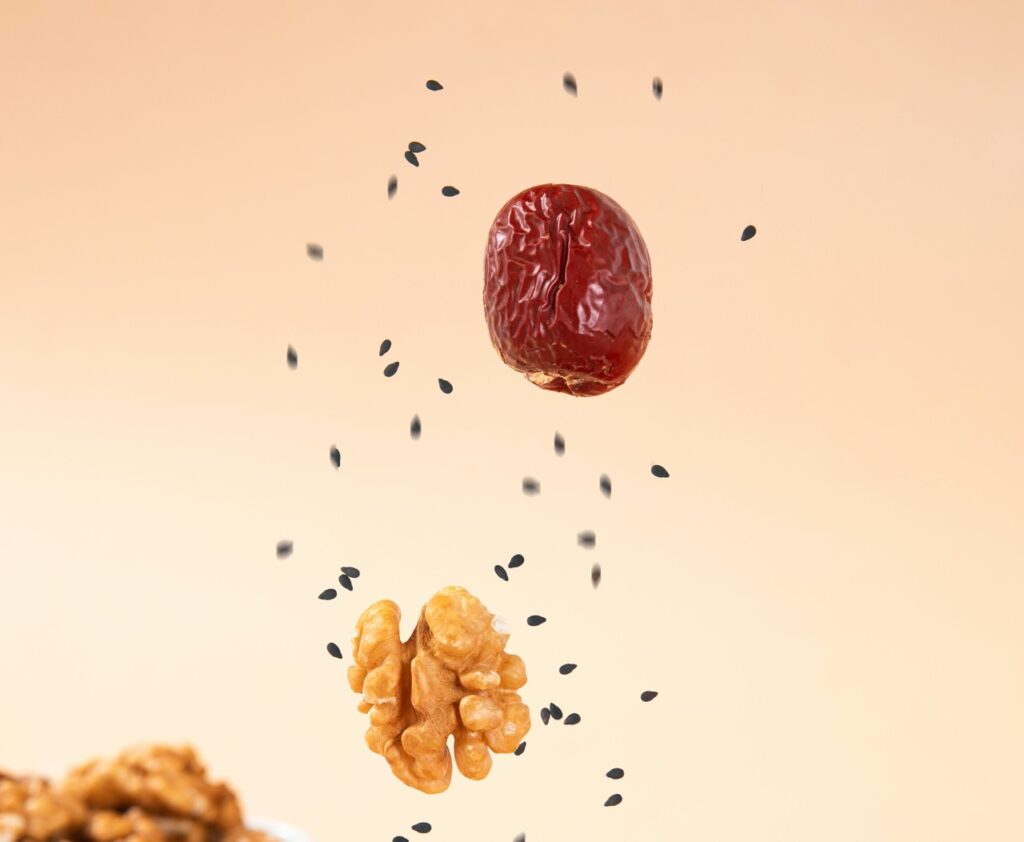What to Eat and Drink
Can You Eat Superfoods Everyday
Is it true that superfoods are everything they’re cracked up to be? Many health-conscious people swear by their benefits and include them in their regular diet without fail. Is it, however, safe to consume superfoods everyday? In this article, we’ll delve into the realm of superfoods and investigate both their potential benefits and the potential drawbacks of ingesting them everyday.
Superfoods have grown in popularity over the years due to their high nutritional content and potential health benefits. These nutrient powerhouses, which are high in antioxidants, vitamins, and minerals, have been linked to improved heart health, immunity, and cognitive function. While superfoods provide a variety of health benefits, it is crucial to examine a few aspects before committing to a daily superfood routine.
Variety is an important aspect. While superfoods are unquestionably healthful, relying only on them can result in vitamin deficiencies. A well-balanced diet that includes a variety of fruits, vegetables, complete grains, and lean proteins is necessary. Additionally, allergies and sensitivities to specific superfoods must be considered.
So, is it safe to consume superfoods everyday? Stay tuned as we go deeper into the topic and reveal the truth about including these nutritional powerhouses into your daily meals.

What are Superfoods?
Superfoods are nutrient-dense foods with remarkable health advantages due to their high levels of vitamins, minerals, antioxidants, and other beneficial components. These meals are frequently linked to lower risk of chronic diseases, improved overall well-being, and increased longevity. While there is no hard and fast definition of what makes a superfood, many foods have risen to prominence in this category due to their excellent nutritional profiles and possible health benefits.
The Advantages of Including Superfoods in Your Daily Diet
Incorporating superfoods into your everyday diet can provide numerous health and well-being benefits. Here are some of the primary benefits of including these nutrient powerhouses into your diet:
- Improved Nutritional Intake: Superfoods are high in critical elements such as vitamins, minerals, and antioxidants, which can help you fill nutritional gaps in your diet. Consuming a variety of superfoods can help you acquire a wide range of critical nutrients for optimal health.
- Enhanced Immunity: Because of their high vitamin, mineral, and antioxidant content, many superfoods offer immune-boosting qualities. These nutrients help your immune system operate properly, making you less susceptible to infections and illnesses.
- Reduced Inflammation: Chronic inflammation has been related to a variety of health problems, including heart disease, diabetes, and some cancers. Superfoods with anti-inflammatory characteristics, such as berries, leafy greens, and fatty fish, can help reduce inflammation in the body and boost general health.
- Heart Health: Several superfoods, including nuts, seeds, and oily fish, have been demonstrated to protect the heart. These foods include omega-3 fatty acids, which can help lower cholesterol, blood pressure, and the risk of cardiovascular disease.
- Improved Cognitive Function: Certain superfoods, such as blueberries, walnuts, and dark chocolate, have been shown to improve cognitive function. These foods are high in antioxidants and other substances that help boost cognitive function, memory, and protect against aging.

Common Types of Superfoods
Superfoods exist in a variety of forms, each with its own set of nutrients and health advantages. Here are some typical types of superfoods to consider including in your diet:
- Berries: Berries such as blueberries, strawberries, raspberries, and others are high in antioxidants, vitamins, and fiber. They have anti-inflammatory qualities and can benefit heart health and cognitive function.
- Leafy greens: Such as spinach, kale, and Swiss chard, are high in vitamins A, C, and K, as well as iron, calcium, and fiber. They are high in nutrients and low in calories, making them a wonderful supplement to any diet.
- Nuts and Seeds: Almonds, walnuts, flaxseeds, chia seeds, and other nuts and seeds are high in good fats, protein, fiber, vitamins, and minerals. They have a variety of health benefits, including enhanced heart health and decreased inflammation.
- Fish: Fatty fish such as salmon, mackerel, and sardines are high in omega-3 fatty acids, which are essential for brain health, heart health, and lowering inflammation in the body.
- Whole grains: Such as quinoa, brown rice, oats, and others are high in fiber, vitamins, and minerals. They give prolonged energy, aid digestion, and can aid in blood sugar regulation.
Including a variety of these superfoods in your diet can assist guarantee that you’re getting a variety of nutrients and reaping the most health benefits.
How to Include Superfoods in Your Meals Everyday
Superfoods can be both delicious and healthful when added to your meals. Here are some ideas for incorporating these nutrient powerhouses into your daily diet:
- Smoothies: To make a nutrient-dense smoothie, combine berries, leafy greens, nuts, and seeds with your preferred beverage (such as almond milk or coconut water). For an added nutritional boost, add a scoop of superfood powders like spirulina or maca.
- Salads: Toss a handful of leafy greens with colorful veggies, berries, and a sprinkle of nuts or seeds in a large mixing bowl. For a delicious and healthful salad, drizzle with olive oil and squeeze with lemon juice.
- Stir-fries: Make stir-fries using superfoods like broccoli, bell peppers, mushrooms, and tofu. For a healthy and filling lunch, top with a tasty sauce consisting of ginger, garlic, and soy sauce.
- Snacks: Stock up on nuts, seeds, and dried fruits for a quick and nutritious snack. Superfood elements like as dates, oats, and almonds can also be used to make energy balls or granola bars.
- Baking: In baking, use whole grain flour or almond flour instead of refined flour. Superfood ingredients such as dark chocolate chips, goji berries, or matcha powder can be added for an extra nutritional boost.

Superfood Recipes for Everyday Consumption
Here are a few recipes using superfoods that are simple to integrate into your meals everyday:
- Berry Spinach Smoothie: For a refreshing and nutrient-dense smoothie, combine a handful of spinach, mixed berries, a banana, almond milk, and a scoop of chia seeds in a blender.
- Quinoa Salad: Cook the quinoa and set it aside to cool. Toss in diced cucumber, cherry tomatoes, avocado, and a handful of walnuts. For a delicious and nutritious salad, drizzle with olive oil and lemon juice and season with salt and pepper.
- Salmon with Roasted Vegetables: Season a salmon fillet with salt, pepper, and lemon juice. Serve with roasted vegetables. Roast it with a variety of bright veggies such as bell peppers, zucchini, and cherry tomatoes in the oven. Serve with brown rice for a complete and filling dinner.
- Chia Pudding: Combine chia seeds, almond milk, honey, and vanilla essence in a mixing bowl. Allow it to chill overnight in the refrigerator. For a nutritious and satisfying breakfast, top it with your favorite fruits, nuts, and granola in the morning.
By including these superfood recipes into your daily meals, you may reap the advantages of superfoods while still eating delicious and wholesome foods.
Is it Necessary to Eat Superfoods Every Day?
While superfoods provide several health benefits, they do not have to be consumed everyday. A well-balanced diet rich in fruits, vegetables, whole grains, lean proteins, and healthy fats can supply all of the elements required for maximum health. The idea is to concentrate on general dietary patterns rather than particular superfoods.
It’s vital to remember that superfoods should supplement rather than replace other necessary food groups in a balanced diet. Depending entirely on superfoods may result in a low nutrient intake and may not supply all of the necessary macronutrients and micronutrients for overall wellness.
Individual nutritional demands and preferences should also be taken into account. Some people may be allergic or sensitive to specific superfoods, making their consumption difficult. It is critical to listen to your body and make decisions that are in line with your specific requirements and preferences.

Potential Risks of Consuming Superfoods Everyday
While superfoods are typically healthy and safe, there are a few potential hazards and factors to be aware of:
- Allergies and Sensitivities: Certain superfoods, such as nuts, seeds, and shellfish, might cause allergies or sensitivities in certain people. If you have allergies or sensitivities to certain superfoods, you should avoid them or consult with a healthcare practitioner before introducing them into your diet.
- Overconsumption: Excessive consumption of certain superfoods, such as goji berries or spirulina, may have negative consequences. It is critical to adhere to prescribed serving sizes and not exceed the daily allowance.
- Interaction with Medications: Certain superfoods, particularly ones with high antioxidant levels, may interact with certain drugs. If you’re on any drugs, it’s best to consult with a doctor before integrating superfoods into your diet.
- Cost and Availability: Depending on where you live, some superfoods may be pricey or difficult to find. When planning your meals, keep the cost and availability of superfoods in mind, and make sure you have access to a varied selection of healthy foods.
How to Choose and Store Superfoods for Optimal Freshness
It is critical to choose and store superfoods correctly in order to keep their nutritional content and freshness. Here are some pointers to make the most of your superfood purchases:
- Choose Organic: Choose organic superfoods whenever possible to reduce your exposure to pesticides and other dangerous substances. On the packaging, look for the organic certification label.
- Examine the Labels: Check the labels and ingredient lists of packaged superfoods. Products with additional sugars, artificial chemicals, or preservatives should be avoided. Choose items with natural components and little processing.
- Buy Fresh and Seasonal: Fresh and seasonal superfoods should be purchased whenever possible. They are most likely at their tastiest and most nutritious. Visit farmers’ markets in your area or cultivate your own superfoods in your garden.
- Store Properly: Follow the storage directions for each superfood to preserve maximum freshness. Some superfoods, such as berries, should be refrigerated, but others, such as nuts and seeds, should be stored in a cool, dark spot.
- Rotate your stock: Start with the oldest superfoods to ensure you use them before they lose their freshness and nutritious worth. Maintain a fresh supply of superfoods by rotating your stock on a regular basis.
Conclusion
Incorporating superfoods into my daily diet can offer numerous health benefits, thanks to their high nutritional content and potential health-promoting properties. However, I understand that superfoods should be part of a well-rounded diet that includes a variety of fruits, vegetables, whole grains, and lean proteins.
While I recognize that it’s not necessary to eat superfoods everyday, I believe they can be a valuable addition to my meals to enhance my nutritional intake and support my overall health. I am mindful of potential risks, consider my individual dietary needs and preferences, and ensure a diverse and balanced diet.
So, is it okay for me to eat superfoods every day? I believe the answer lies in finding the right balance and incorporating a wide range of nutrient-dense foods into my daily meals. By doing so, I can enjoy the benefits of superfoods while nourishing my body with a variety of essential nutrients.


